EDRi
Filter by...
-

Open letter: Modernised ePrivacy legislation must protect fundamental rights
Today, 24 April, EDRi and 13 organisations call for robust legislation to complement and particularise the General Data Protection Regulation (GDPR), and call upon the next European Commission to include comprehensive plans for reforming the European Union’s ePrivacy legislation.
Read more
-
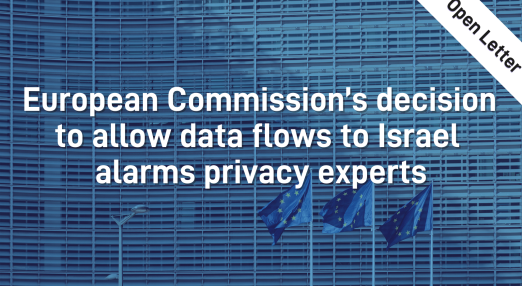
Open letter: European Commission’s decision to allow data flows to Israel alarms privacy experts
Today, 22 April, EDRi and Access Now coordinated an open letter supported by 11 civil society organisations that calls on the European Commissioner for Justice to provide further evidence and clarity on the decision to renew Israel’s status in the adequacy review.
Read more
-

Privacy is not for sale: Meta must stop charging for people’s right to privacy
Ahead of a crucial opinion by the European Data Protection Board (EDPB) – a grouping of the EU’s chief privacy regulators - on Meta’s plan to charge for privacy, the European Commission has opened an investigation that we hope will cast light on the unlawfulness of Meta’s so-called ‘Pay or Okay’ model, which has become the ‘talk of the town’ in Brussels.
Read more
-
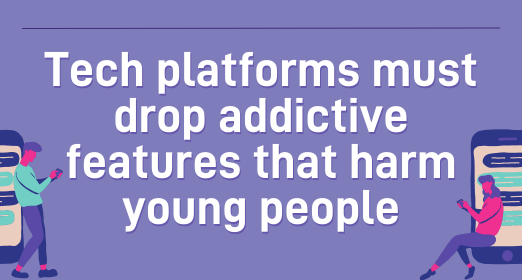
Tech platforms must drop addictive features that harm young people
Social media companies construct their platforms in ways that make them addictive. Algorithms show individuals things that they think will keep them hooked for longer.
Read more
-

Packed with loopholes: Why the AI Act fails to protect civic space and the rule of law
The European Parliament approved the AI Act on 13 March 2024, thus marking the end of a three-year-long legislative process. Yet to come are guidelines and delegated acts to clarify the often vague requirements. In this article, ECNL takes stock of the extent to which fundamental rights, civic space and the rule of law will be safeguarded and provide an analysis of key AI Act provisions.
Read more
-
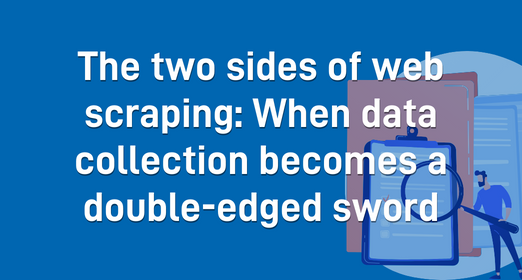
The two sides of web scraping: When data collection becomes a double-edged sword
Emerging AI technology often relies on methods of data collection – such as web-scraping – which can become a double edged sword when not used with safeguards and transparency or in ways that are unlawful. These methods have been used to achieve several key victories for digital rights, but can also be exploitative.
Read more
-

Greek Ministry of Asylum and Migration face a record-breaking €175,000 fine for the border management systems KENTAUROS & HYPERION
On 3 April, the Greek Data Protection Authority (DPA) slapped the Ministry of Asylum and Migration with a record-breaking €175,000 fine under the General Data Protection Regulation for the border management systems KENTAUROS and HYPERION. The DPA’s investigation started back in 2022, following a strategic complaint filed by the EDRi member Homo Digitalis and its partners in Greece.
Read more
-
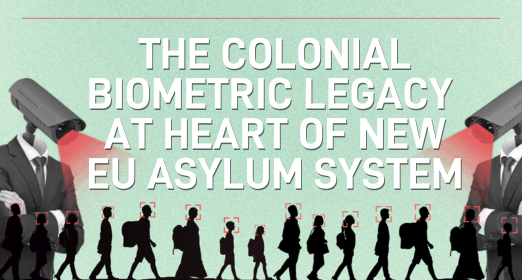
The colonial biometric legacy at heart of new EU asylum system
On Wednesday (10 April), the EU is set to vote on a new set of asylum and migration reforms. Among the many controversial changes proposed in the new migration pact, one went almost unnoticed — a seemingly innocent reform of the EU's asylum database, EURODAC. Although framed as purely technical adjustments, the reality is far more malicious. The changes to EURODAC will massively exacerbate violence against people on the move.
Read more
-
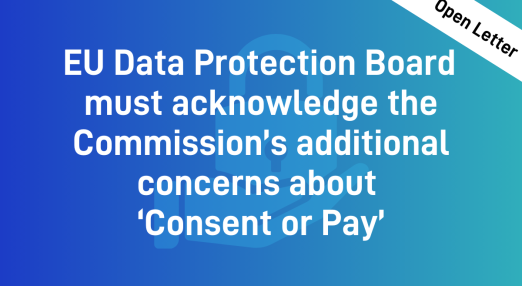
Open letter: EU Data Protection Board must acknowledge the Commission’s additional concerns about ‘Consent or Pay’
On 15 April, EDRi, noyb, Access Now and 20 consumer and digital rights organisations sent an open letter to the European Data Protection Board (EDPB) ahead of the EDPB’s decision on Meta’s “Pay or Okay” model.
Read more
-
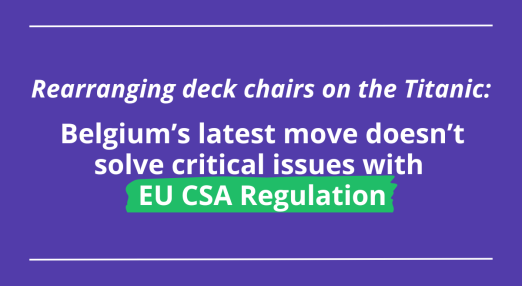
Rearranging deck chairs on the Titanic: Belgium’s latest move doesn’t solve critical issues with EU CSA Regulation
The EDRi network has long-urged European Union (EU) lawmakers to ensure that efforts to combat OCSEA (online child sexual exploitation and abuse) are lawful, effective and technically feasible. The goal to protect children online is vital. This can only be done if the proposed measures work and are compatible with human rights, including privacy and the presumption of innocence.
Read more
-

2023 Digital Rights Update: Eastern Partnership CSO Meter
Countries of the Eastern Partnership region continue digitalisation efforts and some implemented promising data protection legislation. However, the expansion of surveillance and spread of disinformation put digital rights under constant pressure in 2023.
Read more
-

Mandatory fingerprints on IDs will be up for re-negotiation
On 21 March 2024, the European Court of Justice ruled the European Union (EU) regulation that enacts fingerprint IDs to be invalid for formal reasons. The principle of mandatory fingerprint collection was declared to be compliant with fundamental rights. However, the court has required a new regulation to be adopted on a different legal basis, opening up opportunities to ultimately overturn the fingerprint obligation.
Read more
